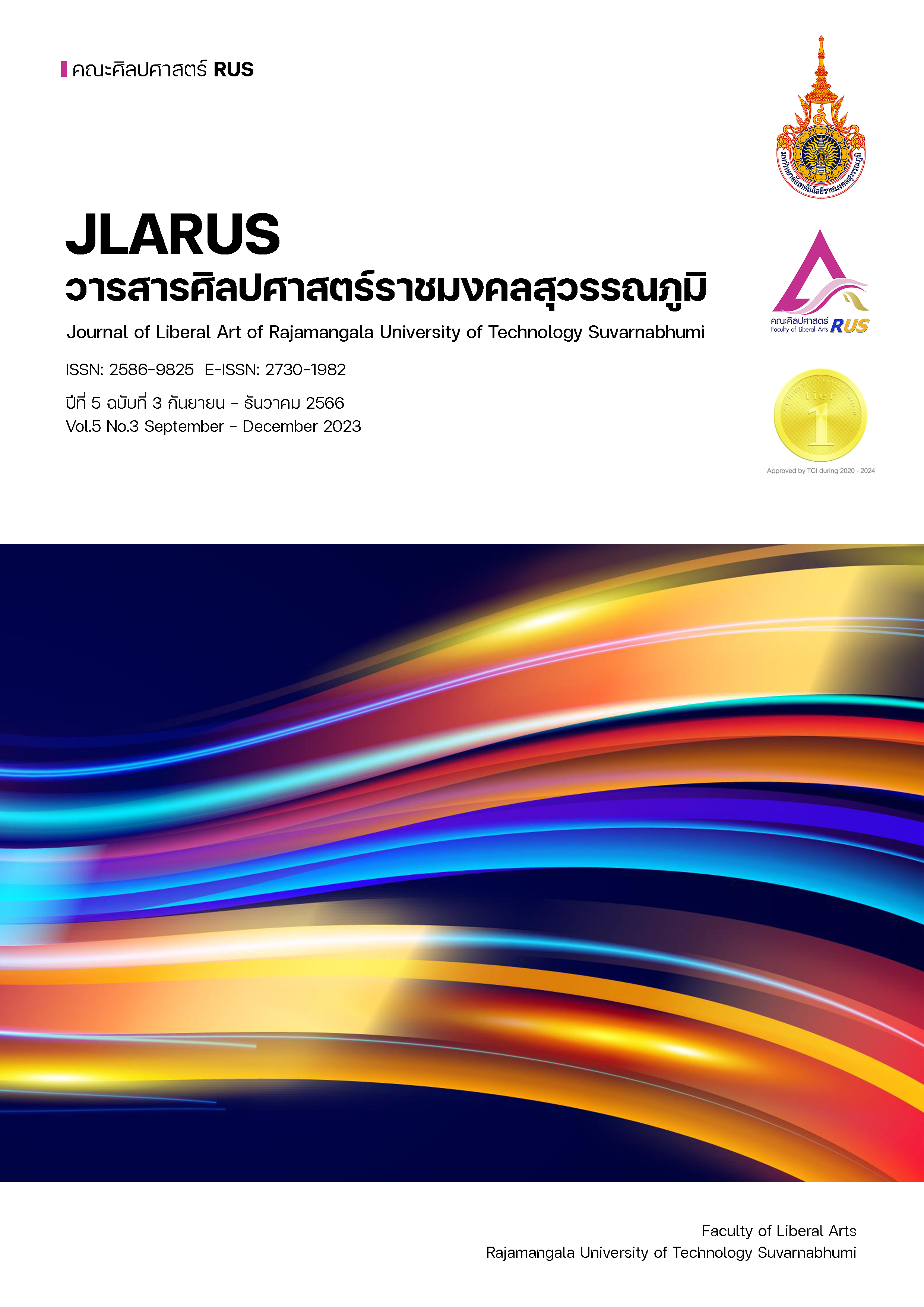A CAUSAL RELATIONSHIP MODEL OF FACTORS OF EDUCATION MANAGEMENT TO ENHANCE EFFICIENCY BY TEACHING AND LEARNING INFORMATION TECHNOLOGY
Main Article Content
Abstract
This article aimed 1) to analyze the educational management factors to enhance teaching and learning efficiency through information technology, 2) to assess and enhance educational management for improved teaching and learning through information technology, and 3) to present a model to enhance teaching and learning efficiency using information technology in schools under the Secondary Educational Service Area Office Bangkok 2, Bangkok, Thailand. The sample comprised 400 high school students, 12 academic administrators, and head teachers, who were selected by multistage random sampling. The instruments for collecting the data were a questionnaire and interview. The data were analyzed by structural equation modeling. The research results were as follows:
1) The study included six factor components and 28 observed variables affecting educational management for enhancing teaching and learning efficiency through information technology.
2) The educational management policies significantly affected the schools’ budgets (0.342), followed by Thailand's educational evolution's impact on the schools’ status (0.148), and the influence of technology adaptation on teaching and learning efficiency with information technology (0.562). All these effects were statistically significant at a level of 0.05.
3) The model fitted well with the data (X2/df = 1.930, p-Value = 0.000, CFI = 0.976, GFI = 0.931, RMSEA = 0.043, and RMR = 0.025) and was introduced as the THAM Model.
Article Details

This work is licensed under a Creative Commons Attribution-NonCommercial-NoDerivatives 4.0 International License.
References
Annas, S., Ruliana, R., & Sanusi, W. (2022). Structural equation modeling for analyzing the technology acceptance model of students in online teaching during the COVID-19 pandemic. Media Statistika. 15(1), 104-115.
Baonerd, P. (2012). Ubiquitous Learning According to the need of secondary schools under Patumthani Educational Service Area Office 2 (Master Thesis). Rajamangala University of Technology Thanyaburi.
Davis, F. D. (1986). A technology acceptance model for empirically testing new end-user information systems: Theory and results (Doctoral Dissertation). Massachusetts Institute of Technology.
DeLone, W. H. & McLean, E. R. (2003). The DeLone and McLean Model of Information Systems Success: A Ten-Year Update. Journal of Management Information Systems. 19(4), 9-30.
Downes. (2012). Connectivism and Connective Knowledge: essays on meaning and learning networks. Retrieved October 12, 2022. from http://www.downes.ca/files/ books/Connective_Knowledge-19May2012.pdf.
Dubey, P. (2020). Factors affecting relative advantage of technology-enhanced learning in higher education: A study from students' perspective in Chhattisgarh. International Journal of Scientific & Technology research. 9(3), 5533-5543.
Hatsaprab, P. (2016). Causal Relationship Model of Factors Affecting The Performance
Competency of Education Teachers under the jurisdiction of the Bureau of special education administration (Doctoral Dissertation). Bangkok: Ramkhamhaeng University.
Hollins-Alexander, S. (2013). Online professional development through virtual learning communities, Corwin Press.
Jinda, A. (2016). The problems and guidelines support of use Information and Communication Technology for Educational of Schools in Nakhon Pathom Primary Educational Service Area Office 2 (Master Thesis). Bangkok: Silpakorn University.
Jongpeeradechanon, S., & Paiwittayasiritham, C. (2019). The future of information technology development in schools under the Bangkok Metropolitan Administration in the next decade. Journal of Education. Chulalongkorn University, 48(1), 353-369.
Koehler, M. J. & Mishra, P. (2009). What is technological pedagogical content knowledge?. Contemporary Issues in Technology and Teacher Education, 9(1), 60-70.
Stevens, J. P. (2002). Applied multivariate statistics for the social sciences. Mahwah, NJ: Lawrence Erlbaum Associates.
Tabachnick, B. G., & Fidell, L. S. (2007). Using Multivariate Statistics (5th ed.) New York: Allyn and Bacon.


